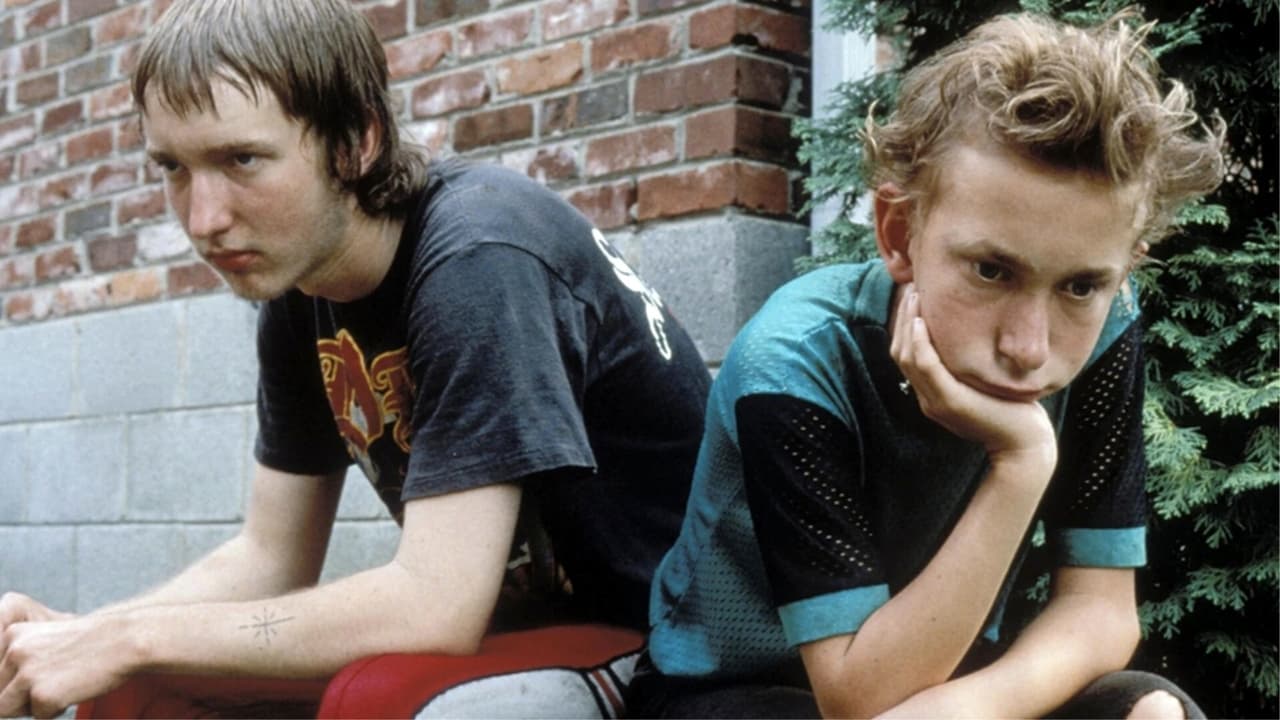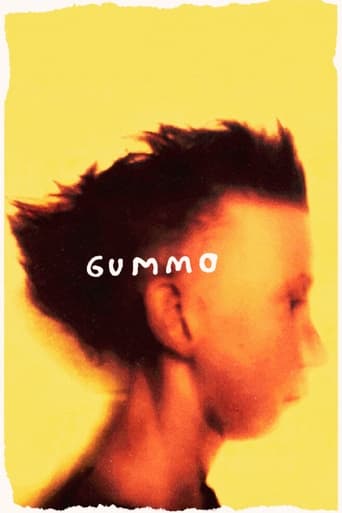



Wonderful character development!
Plot so thin, it passes unnoticed.
Watch something else. There are very few redeeming qualities to this film.
View MoreAfter playing with our expectations, this turns out to be a very different sort of film.
View MoreThis movie is a widely hated one from what I have seen and read, but, if you have any appreciation for art, realism, character study, and seeing the harsh realities that many filmmakers are to afraid to add in their movies, then this should be a gem to you. The movie, at least in my opinion, is a metaphor for poverty, depravity, hopelessness, rough upbringings, the people that stem from those upbringings, and the downtrodden parts of America that aren't all sunshine and rainbows. I think anyone should just give this movie a chance and put their thinking caps on while doing it, not expect to be a huge blockbuster.
View MoreI found this film whilst blandly browsing through IMDb in the look for interesting movies, as I usually do. Initially, the synopsis and trailer of the film alone intrigued me significantly, additionally, as I briefly read a few short critic/audience reviews... my curiosity increased even further as most critics seemed to disregard the film due to its topic, whereas the audience discovered more. Although, as usual, I also had initial doubts about the evidently strange style the film undertakes. The so-called "art house" genre very often seems to be explored on either a very profound and effective level, or simply on a pretentious "open for interpretation" approach. My sceptical feelings about 'Gummo' were initially evoked around the fact it may undertake the latter approach due to numerous reasons, but predominantly due to the director's reputation and filmography.First of all, I believe it is vital to approach this film with a very open mind... there are touching as well as controversial moments, both of which are explored in a fairly appropriate manner; nor downplayed or exaggerated. However, there are a few character actions/motives which do feel slightly exaggerated simply for the sake of exploiting controversy and thus potential shock value. Thankfully, this is very minimal and did not distract from the emotional aspect of the film as I'm sure I would end up hating this film if the focus was entirely on exploiting controversy, which is what certain critics seem to suggest. A factor which supplemented this was the somewhat jarring utilisation of documentary conventions; initially the film seems to be unsure of what it's trying to be and seems to randomly incorporate found footage along with interview-like scenes for character development. However, as the film progresses, these seemingly unfitting conventions start to complement each other naturally and form an unconventional yet strangely realistic narrative, introducing new personalities constantly which I instantly became invested in.Most of the actors pull off a good job, all of the performances felt convincing enough and some of the characters' snippets of narration were executed very well, and thus allowing me to effectively 'absorb' their unique personalities better. Surprisingly, Korine himself starred in one of the segments, but unfortunately overacted his small role quite significantly to the point where the actual subtext of the segment felt overdone. Speaking of subtext, the entire film is woven with daring and extremely intriguing themes throughout, some of which include desensitisation, acceptance, self-analysis and for the most part, attempting to live an enjoyable and fulfilling life in arguably one of the most unfulfilled places stricken by poverty.One of the main reasons why 'Gummo' worked for me was due to its unusual exploration of what you can simply label as 'outcasts'. Thankfully, it took a suitable approach when exploring these potentially damaged people, as well as mentally challenged people. I personally despise the mockery of such individuals on film, or anywhere in fact, so I was continuously anxious about the film shifting into the comedic route simply for demeaning purposes. Instead, the film showcases these individuals and their raw emotions in its distinctive style and after its halfway mark, utilises the documentary conventions more successfully in order to create its overriding tone of harsh reality.In conclusion, 'Gummo' is an intriguing and thought-provoking experiment in film making which requires a very open-minded audience. Without trying to give the film more credit than it deserves, I do believe it is ahead of its time in terms of what it explores and how it's presented. Each character isn't ever fully developed, however each character was extremely evocative as I was completely invested in every story and representation. This was mainly due to the compelling themes the film chooses to explore, and furthermore providing a great deal of hidden meaning. However, whether these 'hidden meanings' were intended or whether I was simply reading into the film too much... I do not know. It is truly a unique film, and it's certainly difficult to recommend as it does require a very avid and open-minded approach; definitely not a film that the general public would enjoy, but certainly a film the general public should examine.
View Morei love this film, and i wish more film makers would try an portrait a situation as good as Korine does here. When you make something that basically new, even in cinema, you bound to be hated upon. but what this movie does for me, it might not do for the next guy. some people complain about the lag of a traditional story line, while others don't understand the symbolism, that doesn't mean it doesn't have any. but what this movie does so brilliantly, is to project feelings upon you. feelings we don't necessarily like, and find uncomfortable to process. and i personally love when i get emotionally challenged by a film, even if it is uncomfortable. Only few films manage to do this, but Gummo is one of them. Its a movie about a derelict town, and the people who comes with it, its not a place you wanna live, and this movie portrait that perfectly.
View More1994 is oftentimes considered to be one of the best years for cinema, by both casual viewers, cinephiles, and hardcore film history buffs alike. We received films that would please all audiences; Zemeckis' "Forrest Gump", Tarantino's "Pulp Fiction", Kieslowski's "Three Colours: Red", Burton's "Ed Wood", Tarr's "Satantango", the list goes on. As such, it's easy to pass over a film that came out that year which, in reality, was quite influential, more so than some of the previously mentioned movies. That film was Clark's "Kids" (IMDb has it listed as 1995, but it premiered at film festivals in '94). While it was met with mixed reviews at the time (and mixed reviews now), it was seen as one of the first films that really had this bold statement about American youth, and that was that so many of them were these sex-addicted, hopeless stoners with meaningless lives. While Larry Clark directed this, Harmony Korine, 19 at the time, wrote the script and had a major influence on the film. Van Sant (whose film "Elephant", as I stated previously, makes him a more than capable director) cited that Korine would be "the face of postermodern American directors", and Werner Herzog ("Aguirre: The Wrath of God") also gave similar praises. The partial writer for one film, however, doesn't get such praises. A mere three years later, Korine released what is known now to be one of the most unsettling, disturbing, and downright unusual films in the form of Gummo. Surprisingly enough, the critical reaction for Gummo has been worse than that of "Kids". A possible explanation for this is that "Kids" is simply more viewer-friendly. Any 30+ year old film buff with a decent taste could probably watch "Kids" and at least get a bit of perspective, while maybe questioning the youth of the nation.Gummo doesn't have any questions to ask though. It's more of a work of art that is absolutely disgusting to look at, yet fascinating in every way. So, for a comparison, it would be like if Van Gogh crashed two cars together at exactly 39.4 miles per hour, with them perpendicular to one another, with no wind in the air. It might seem pointless at first, but you may need to look a bit closer to truly analyze the themes of Gummo.The opening scenes describe how a tornado has destroyed the town of Xenia, Ohio, and we then begin viewing the residents of the town trying to find meaning in their pointless, hopeless, and overall miserable lives.Korine stated once that about 75% of Gummo was scripted. Upon rewatching the film, I can hardly determine where the realism starts and where the fiction ends. I've often times commended directors for having a sort of "surrealism realism" as Von Trier did so magically with his masterpiece "Dogville", and Korine takes it to a whole new level. The documentary feel adds to the film spectacularly because it forces the viewer to confront reality: that, somewhere in the world, there are people who behave as the characters in Gummo do.Even the name of Gummo is symbolic in a few ways. The name "Gummo" is named after the oldest of the Marx brothers, who were notable for their anarchist comedy, which Gummo is to some extent. However, the oldest Marx Brother never appeared on camera; he was always more indirectly involved with cinema. Korine, here, is stating that Gummo is something new; something cinema has literally never seen before, even if it has seen its "relatives" ("Kids" possibly?)There are a number of assumptions that reviewers make when discussing the film; I'm not suggesting any of these are right or wrong, but they do exist. Some suggest that the town is made up of Satanists, which is how they are able to live in a near trance-like state throughout the film and simply accept the horrors of their lives. These conclusions are most likely also drawn from the images of self harm used in the film, as well as heavy metal taking up a good portion of Gummo's soundtrack. Other say that the film is a more real-life portrait of a post- apocalyptic scenario, stripping man down to his bare bones and showing what he really is. Curiously, only a single character in Gummo is shown to have any pathos attached to him whatsoever. This character is Tummler, who is seen to feel overwhelming depression in the film as it leaks over into the audience at times. It's not even sadness about poverty, or loneliness, but rather a state of hatred for anything and everything, the feeling of wanting to be dead, or at the very least have something to give life meaning.Gummo hits the audience over the head repeatedly with its horrors of this small town wasteland. Teens addicted to sniffing glue, teens buying down-syndrome prostitutes, teens making a competition over who can kill the most cats to sell to a local restaurant, etc. Although his approach is heavy-handed, it has an artistic purpose: some people live like this, and Korine is letting us see within his mind for an hour and a half. There are parts which are nearly impossible to watch, but the film has this unusually captivating "feel" to it, which is enhanced by the incredible cinematography.It's not easy to watch, it's not fun to watch, and it is also incoherent at times. The comparison could be made that watching Gummo is like reading about the Holocaust; neither are fun to watch, and the imagery is nauseating at times, yet many people are fascinated by it, not in a sadistic sense of the word, but merely fascinated by the fact that it happened. I'm amazed that a film like Gummo was made, yet I'm satisfied with its existence.
View More